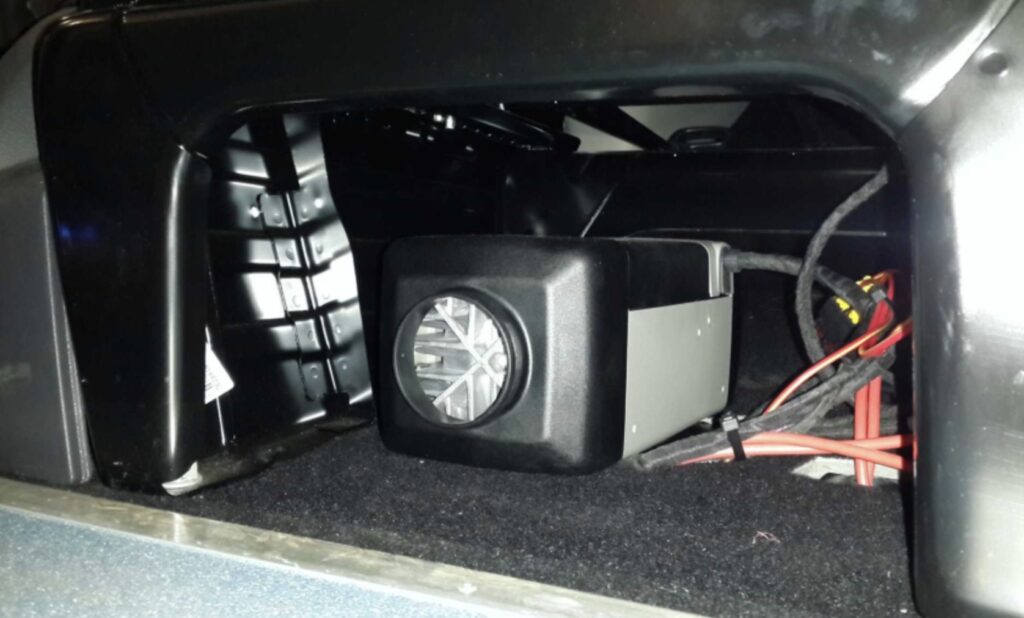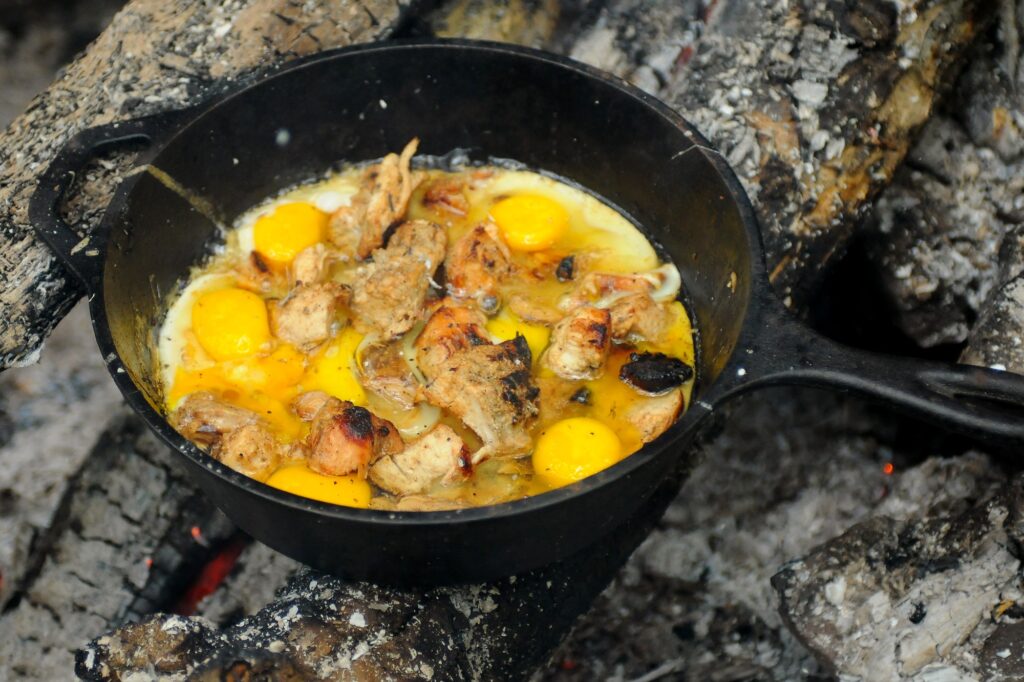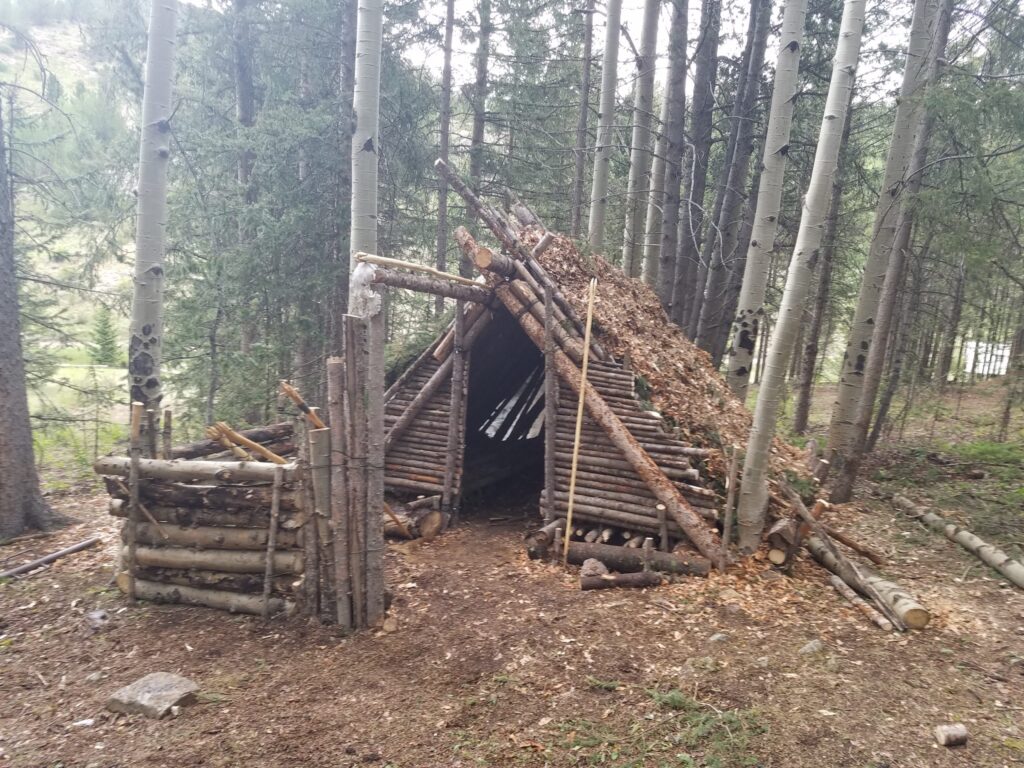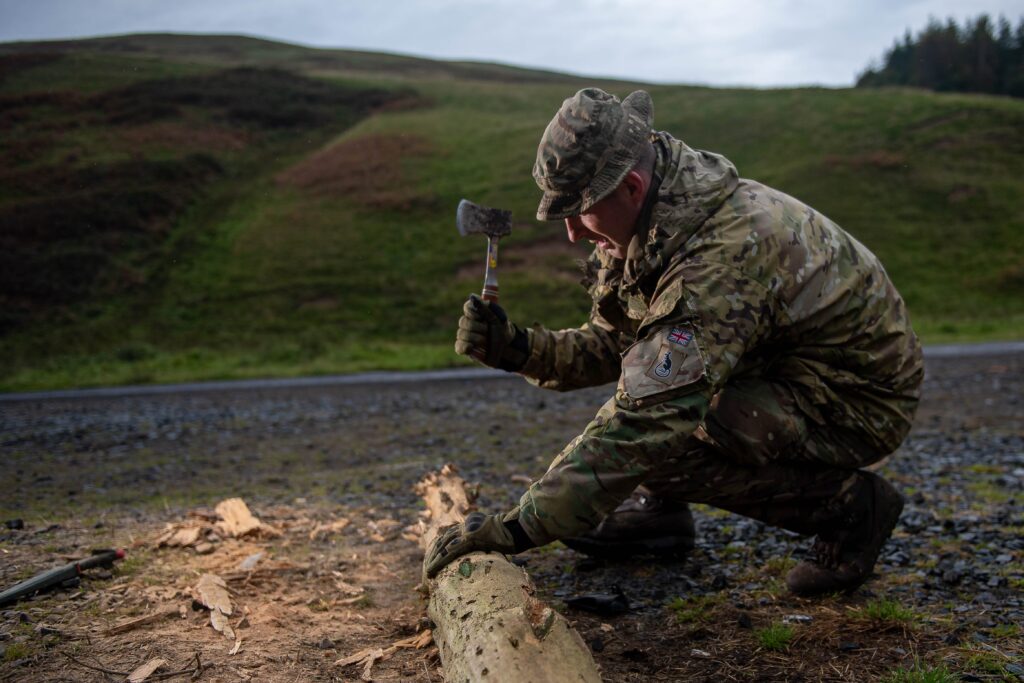The regular camping season starts in April and ends in September. While the months of July to August are high seasons, the remaining months belong to the low and middle seasons. Most camping enthusiasts travel by camper in the summer, but the spring, autumn, and winter months are also very popular for camping holidays. While you have to make sure that you don’t get too warm in midsummer, holidaymakers suddenly have to deal with the topic of “heating the camper” in the off-season. Even if life in a caravan has the reputation of being a bit simple, of course, you shouldn’t freeze. We present you with the possibilities of how you can heat your camper.
Table of Contents
Minimize heat loss before heating
Every camper heater is of little use if the heat escapes to the outside too quickly. Then you heat the campsite at the same time, which of course is not the point. So before you start removing the heating system, you should first insulate the vehicle sufficiently. Not only the walls are important here, but also the floor and the ceiling. If you are also on the road in winter, you drive better with a double floor. Just like in the house, the windows in the camper are the weak point in terms of thermal technology. A large part of the heat is often lost here, which is of course impractical. However, special camping windows are usually better insulated and keep the heat generated inside the campervan. Since the windows are mostly made of very thin acrylic material, you should pay special attention to the windows.
The number of windows is also important. Sure, it’s nice to have as much daylight as possible in the campervan/camping trailer. However, keep in mind that this allows heat to escape faster in winter and more heat inside in summer. The driver’s cab is also a point of attack, as this is usually not insulated. If you want to heat your camper, you should protect the cab from too much heat loss with thermal mats on the inside or an insulating mat on the outside.
Proper ventilation also plays an important role, especially when you heat your camper. While most people at home are very careful when it comes to ventilation, this is often neglected in the mobile home. Especially in winter, you are more likely to keep the windows and doors closed, after all, the heat should stay in the mobile home. But that’s not a good idea, because then condensation forms quickly and the indoor climate becomes humid, which in turn promotes the formation of mold. It is therefore essential to air the room regularly, even when it is cold outside. It is enough if you ventilate for five minutes two to three times a day.

The different variants of camper heating
If you go on a winter holiday in a caravan or mobile home, you won’t get very far without heating. There are several ways to heat the vehicle and these would be the following:
- Diesel or petrol heating
- Gas heating
- Electric heating
Diesel or petrol heating
You feed this heater with the fuel from your vehicle tank. That means: If you have enough of it in the tank, the operation of the camper heater is always ensured, and that is worldwide. The advantage is that it is relatively economical in consumption and heating the camper is not too expensive.

If you are looking for a good diesel camping heater, you can visit >> this store << and buy a diesel campervan heater.
In addition, it is quite light in weight, which of course always plays a role when camping. The disadvantages are the slightly higher initial costs when compared to gas or electric heating. The environmental aspect cannot be sugarcoated either, the heating produces exhaust gases and is therefore not an environmentally friendly variant of camper heating.
Gas heating
Many campers travel with gas bottles anyway because they need them for cooking. The gas can also be used to heat the camper. However, there are a few things to consider here, because you have to comply with significantly more safety regulations than is the case with a diesel or petrol heater. Of course, the gas heater must also be designed for indoor use and a carbon monoxide detector should definitely be installed.
It is recommended to always have gas heaters installed and connected by a professional. If there is a leak, it can quickly become very dangerous.
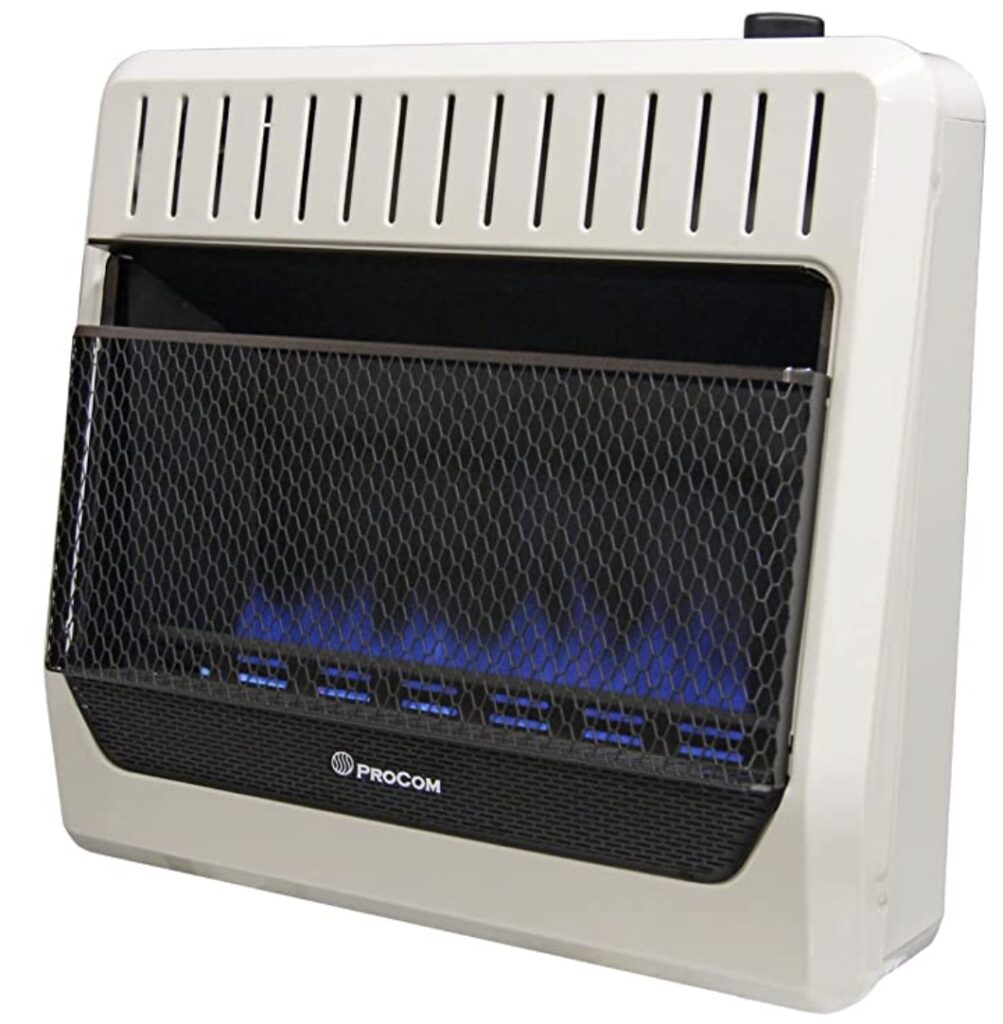
>> Click Here To See The Pricing For The Gas Heater <<
Electric heating
The camper can also be heated with an electric heater, the heat is distributed very efficiently in the room. It runs on a 110 – 230 volt power connection, it cannot be operated on the battery in the long term. The electric heater only makes sense if a shore power connection is available.

>> Click Here To See The Pricing Of The Electric Campervan Heater <<
But there is also the possibility to install solar panels on the roof of your campervan to generate your own electricity. Depending on how big your camper van or camping trailer is, the more solar panels you can mount on the roof and thus generate more electricity.
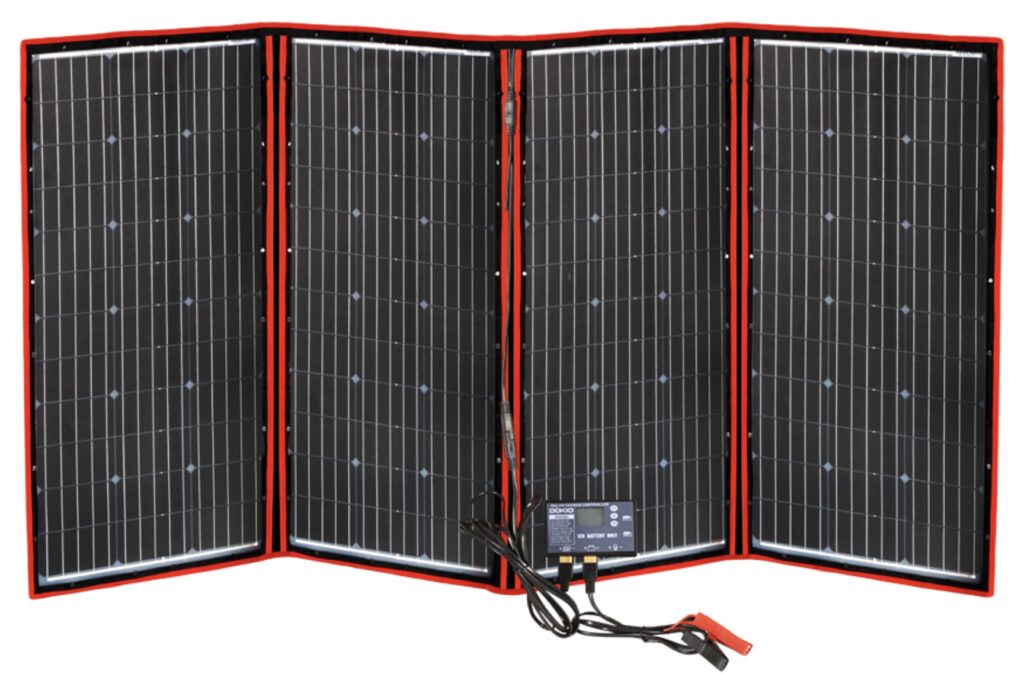
>> Here you can find the best solar panels and solar equipment for camper vans <<
Heating expansion
You have to decide for yourself which heating extension is best for you and your camping style. The installation is always carried out by an expert. An adequate power supply is also important because no matter which heating system you choose, all three need electricity.
The electric heater accounts for the highest power consumption here, but the other two also need electricity to operate the fan and distribute the warm air. This brings us to the next point because the accessories for heaters also include air vents, which are part of the warm air systems and regulate heat distribution.
A warm air system allows the warm air distribution to be optimized so that it is evenly warm in the mobile home and not just in one place.
Hot water in the caravan or mobile home
A relaxing camping holiday also means that you don’t have to do without the basic things. In addition to pleasant temperatures, this also means access to warm water. A water heater is recommended here, especially in winter the fresh water must be protected from freezing anyway. A frost monitor, i.e. a special high-performance heating cartridge for installation in the fresh and waste water tanks, is also part of the accessories. With the water heater you not only have unfrozen water, but also warm water. Don’t underestimate the “luxury” of warm water, even if you take a shower outside, even washing your hands or washing up with cold water in winter is very uncomfortable.

>> Click here to see different water heaters for camping <<
More ways to heat the camper
Heating carpets and electric blankets provide selective heat without the need for a heater. While the heating carpets heat near the floor, electric blankets can be used as a surface to sit on. Since the floor is usually a weak point in the caravan, even with heating, the heating carpets can also be used as a supplement.
Fan heaters and radiant heaters are also an option to heat the camper. For example, there are gas-powered radiant heaters that are suitable for both indoor and outdoor use. Electric heaters equipped with an electronic thermostat and frost monitor are also an option. Air conditioning systems can not only be used for pleasant coolness in summer, but also for cozy warmth in winter.
Permanently installed air conditioning systems ensure pleasant temperatures in the mobile home all year round. Mobile air conditioners are also practical because they can also be used for other purposes. A good addition, especially for rough nights, is electric or classic hot water bottles. These can simply be taken to bed and provide a cozy warmth there. At night, it is better to use the conventional hot water bottle, as caution is required when using electric blankets, hot water bottles, and the like while sleeping. But don’t worry, a normal hot water bottle will keep you warm for a few hours under the blanket.
With air conditioning in campervans or RVs, you should always bear in mind that these air conditioning systems require a lot of electricity. Therefore, you should always keep in mind that installing solar panels can make sense. So you can also use the air conditioning for heating or cooling off the beaten path.

